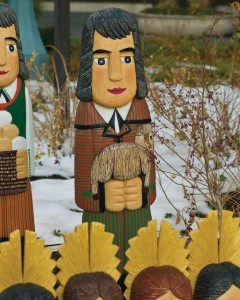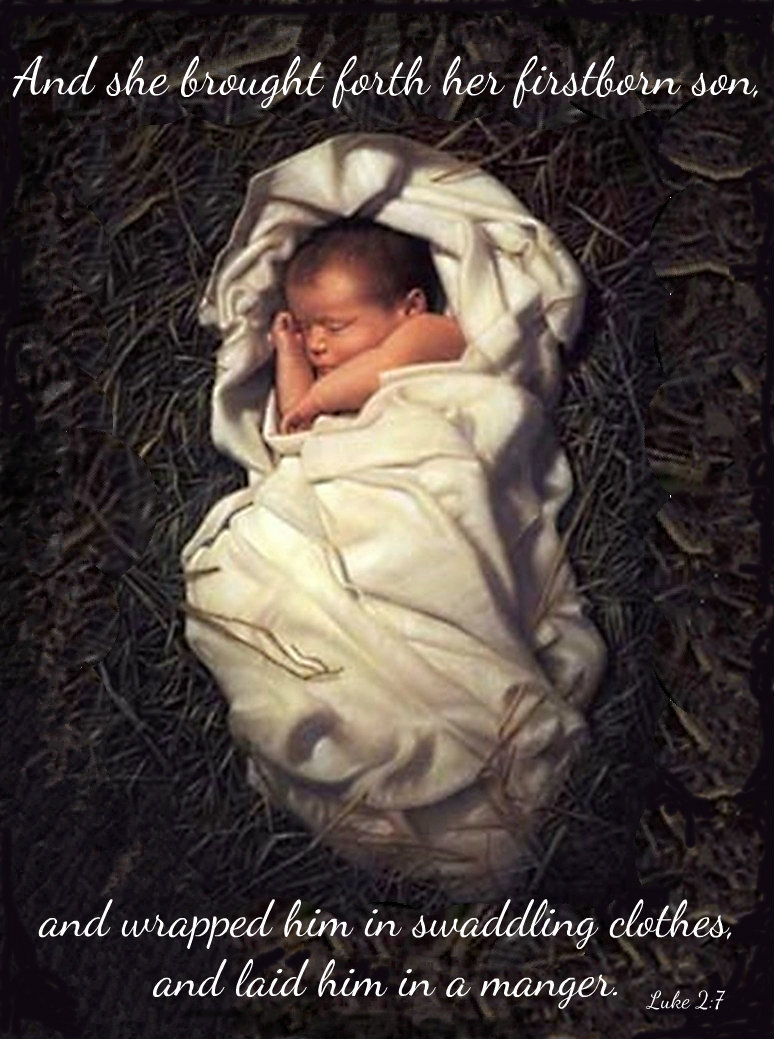Karen Trifiletti, MA is a Philadelphia-born convert to The Church of Jesus Christ of Latter-day Saints, single mother of two, writer, and non-profit business professional.
Yes, members of The Church of Jesus Christ of Latter-day Saints (“Mormons”) living in the United States and also in Canada, do typically celebrate Thanksgiving, which is regarded as a national holiday. (It should be noted that Mormons are a diverse, global religious people, of all ethnicities, and that the majority of Mormons—7,963,489– actually reside ‘outside’ of the United States).
 Latter-day Saints (nicknamed “Mormons” as a result of belief in a volume of scripture titled, The Book of Mormon: Another Testament of Jesus Christ— recording God’s interaction with ancient inhabitants of the Americas), do celebrate many traditional holidays, including Thanksgiving, Christmas, and Easter. They are a people, like those of many faiths, who are Christ-centered, family-centered, and who enjoy the communion of friends, a good meal, social gatherings, and opportunities to reflect and renew the most important relational and ultimately, divine, aspects of life. Life in Christ is the life of a striving Latter-day Saint; gratitude. They believe that men and women are “that they may have joy” and have it “more abundantly” through the provisions of Jesus Christ, the results of His Sovereign work in our individual and national and international lives (John 10:10, 2 Nephi 2:25).
Latter-day Saints (nicknamed “Mormons” as a result of belief in a volume of scripture titled, The Book of Mormon: Another Testament of Jesus Christ— recording God’s interaction with ancient inhabitants of the Americas), do celebrate many traditional holidays, including Thanksgiving, Christmas, and Easter. They are a people, like those of many faiths, who are Christ-centered, family-centered, and who enjoy the communion of friends, a good meal, social gatherings, and opportunities to reflect and renew the most important relational and ultimately, divine, aspects of life. Life in Christ is the life of a striving Latter-day Saint; gratitude. They believe that men and women are “that they may have joy” and have it “more abundantly” through the provisions of Jesus Christ, the results of His Sovereign work in our individual and national and international lives (John 10:10, 2 Nephi 2:25).
Thanksgiving was set as a national holiday in the United States in 1827, through the campaign of Sarah J. Hale, and is part of the national culture and spiritual taproots of LDS belief in a nation born under God and a Constitution affected by His Hand and intervention. Thanksgiving extends a spirit of gratitude for all we have and are–and recognizes dependence on a Divine Being for the breath to speak and carry on from day today as we exercise agency to fill our missions on earth and give back to God and the world.
Thanksgiving traditions are as varied among Latter-day Saints (“Mormons”) as they are among Americans in general. Typically, there is a day or two work-holiday extension, and a special Thanksgiving meal is prepared–traditionally (90%) turkey with all its accoutrements–cranberries, sweet potatoes, stuffing, and any one of a smorgasbord of fresh pies–including the traditional spiced pumpkin pie dolloped with whipped cream–for dessert. Those whose hands hang down or who may not have the means for a feast are recipients of meals and invited to join the homes and gatherings of many Latter-day Saint families. Mormons believe in the verse of scripture wherein the Lord calls us not only to invite the rich to our tables and feasts, but the poor (Luke 14:12-13). Mormons look out for each other and for those in neighborhoods and among us in the world who have less, and to whom they can give more; they participate actively in food drives, caring for the homeless, and sharing their bounty.
They, like others, give generously in fasts throughout the year, and not only during holiday seasons. During regular seasons of fasting and prayer, members of The Church of Jesus Christ of Latter-day Saints (“Mormons”) give generously the amount of two meals they’d otherwise partake of, to those in need, through what is known as a “‘fast offering.” This is in addition to their regular tithed contributions that are offered freely to advance the kingdom of God on the earth, contributing to the building of meetinghouses and temples of one of the world’s largest Churches.
Personal Expressions of Gratitude:
My own grandparents were immigrants to Ellis Island, having come here to begin a new life in an area where religious freedom and a constitutional law was in place for them to rise to their potential as individuals, families, and communities. I often reflect, in thanksgiving, of my grandmother who travelled for 22 days by boat, without light most of the time, and alone (with no friends or family on board with her), to come to the United States, and start life in Philadelphia. She hailed from a small town in Italy, Ascoli di Piceno, where her family owned a thriving local bakery that burnt to the ground.
 I’m grateful, as well, to know the purpose of life. As a convert to The Church of Jesus Christ of Latter-day Saints, I’d searched for additional truth for years, not knowing where to find it. As if assembling a large jigsaw puzzle, I put pieces together as providentially led. At one point in my life, I began to despair that I might never find essential fullness of the gospel—the real purpose for life and the real roadmap to eternity, if there were one. Interrupted in an effort to take my life by a sure strain of impressions from a loving God, I knew I needed to live on and that I’d discover my purpose in life. That knowledge came through my own reading of the New Testament, I gleaned points about Christ’s Church and recorded them. I visited a number of churches comparing the list of characteristics and truths that Christ taught with those of many denominations–from Swedenborgian to Methodist to Lutheran to Pentacostal, to Jehovah’s Witnesses–but always came up short. There was always some disappointing deviation between what the Savior taught and what I found taught, though I found many sincere Christians in those denominations. Ultimately, I found literature regarding the teachings of The Church of Jesus Christ of Latter-day Saints in a vestibule of a Baptist Church. While it was written to deter individuals from the faith, I found the teachings of the Church of Jesus Christ, as outlined in the brochure, to match those I’d previously learned from The Holy Bible. I pursued an investigation of the teachings further and was then baptized soon after receiving a personal witness that this was the direction my life should take, and that indeed the keys to the knowledge of God were again restored to the earth. The Savior’s gospel, as I’ve come to know and understand it, and my relationship with Him, have provided all I’ve needed to negotiate life and to progress and assist in His work of bringing to pass the “immortality and eternal life of man” (Moses 1:39).
I’m grateful, as well, to know the purpose of life. As a convert to The Church of Jesus Christ of Latter-day Saints, I’d searched for additional truth for years, not knowing where to find it. As if assembling a large jigsaw puzzle, I put pieces together as providentially led. At one point in my life, I began to despair that I might never find essential fullness of the gospel—the real purpose for life and the real roadmap to eternity, if there were one. Interrupted in an effort to take my life by a sure strain of impressions from a loving God, I knew I needed to live on and that I’d discover my purpose in life. That knowledge came through my own reading of the New Testament, I gleaned points about Christ’s Church and recorded them. I visited a number of churches comparing the list of characteristics and truths that Christ taught with those of many denominations–from Swedenborgian to Methodist to Lutheran to Pentacostal, to Jehovah’s Witnesses–but always came up short. There was always some disappointing deviation between what the Savior taught and what I found taught, though I found many sincere Christians in those denominations. Ultimately, I found literature regarding the teachings of The Church of Jesus Christ of Latter-day Saints in a vestibule of a Baptist Church. While it was written to deter individuals from the faith, I found the teachings of the Church of Jesus Christ, as outlined in the brochure, to match those I’d previously learned from The Holy Bible. I pursued an investigation of the teachings further and was then baptized soon after receiving a personal witness that this was the direction my life should take, and that indeed the keys to the knowledge of God were again restored to the earth. The Savior’s gospel, as I’ve come to know and understand it, and my relationship with Him, have provided all I’ve needed to negotiate life and to progress and assist in His work of bringing to pass the “immortality and eternal life of man” (Moses 1:39).
I’m grateful, not only on Thanksgiving Day of course, but daily, for some of these divine gifts and graces that are strewn along my path from a loving God, a literal spiritual Being and Father, and His Son, Jesus Christ. I’m grateful for the small and simple things—for the ability to read, act, learn, engage life, and for the unseen but real tangibles that mean the most. I’m grateful to be a mother of two girls–a privilege and truly, as God’s in His sphere, “my work and my glory.”
I’m grateful for having been raised in Philadelphia, the birthplace of liberty, the signing of an inspired and revered document safeguarding our fundamental inalienable rights to worship as we choose, and to live according to the morality pre-dating the law but protected by it.
Mormons believe in the inspired nature of the Constitution and in the divine Hand in moving our forefathers through the arduous process of deliberation and documentation of that great treatise of government, whose success largely depends on a moral, God-revering following. In the words of one late LDS (“Mormon”) apostle, Harold B. Lee:
We would hope that we might be instrumental in developing statesmen—men not only with unsurpassed excellence of training in the law, but also with an unwavering faith that the Constitution of the United States was divinely inspired and written by men whom God raised up for this very purpose (D&C 101:80) (Ye Are the Light of the World 118; Provo, UT, 12 Nov 1971).
This gratitude for the founding fathers is reflected as well, in the words of Ezra Taft Benson, late president and prophet of The Church of Jesus Christ:
The Founding Fathers understood the principle that “righteousness exalteth a nation” (Prov 14:34), and helped to bring about one of the greatest systems ever used to govern men. But unless we continue to seek righteousness and preserve the liberties entrusted to us, we shall lose the blessings of heaven. Thomas Jefferson said, “The price of freedom is eternal vigilance.” The price of freedom is also to live in accordance with the commandments of God. The early Founding Fathers thanked the Lord for His intervention in their behalf. They saw His hand in their victories in battle and believed strongly that He watched over them (Ezra Taft Benson, Teachings of Ezra Taft Benson, pg. 601; from an address given at the Provo Freedom Festival, Provo, UT, 29 Jun 1986).
We wish all who celebrate Thanksgiving, joy in service, family, and growth in your relationship with God.



